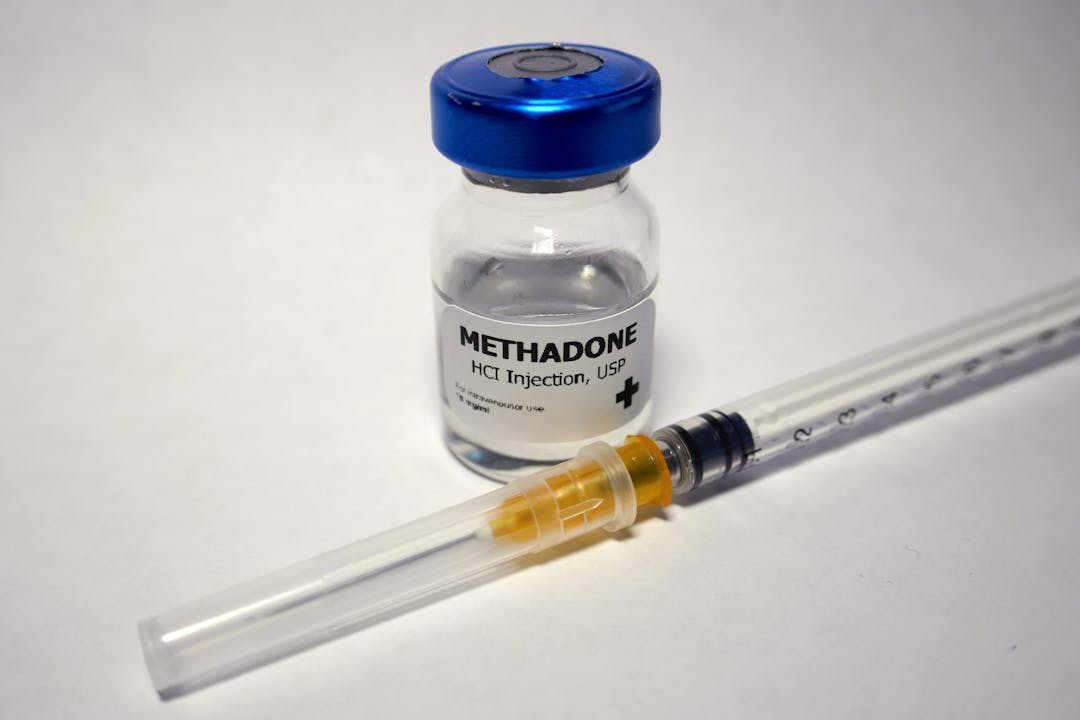Methadone: Health Benefits & Risks
What are the health benefits of Methadone?
Methadone is a medication primarily used for the treatment of opioid addiction. It belongs to a class of drugs known as opioid agonists, which work by changing how the brain and nervous system respond to pain. Methadone has several health benefits, including:
- Treatment of opioid addiction: Methadone is used as a long-term maintenance treatment for opioid addiction. It helps reduce withdrawal symptoms and cravings, allowing individuals to focus on recovery and rebuild their lives.
- Reduction of opioid misuse: Methadone treatment has been shown to reduce the misuse of opioids, including illegal opioids like heroin, by stabilizing opioid receptors in the brain.
- Prevention of overdose: Methadone treatment can reduce the risk of overdose by providing a controlled, long-acting opioid that helps prevent withdrawal symptoms and cravings without causing the euphoria associated with other opioids.
- Improvement in quality of life: Methadone treatment can improve the quality of life for individuals with opioid addiction by reducing the physical and psychological effects of opioid dependence.
- Reduction in transmission of infectious diseases: Methadone treatment has been associated with a reduction in the transmission of infectious diseases such as HIV and hepatitis C, which are commonly associated with opioid injection drug use.
- Reduction in criminal activity: Methadone treatment has been shown to reduce criminal activity among individuals with opioid addiction, leading to safer communities.
- Access to supportive services: Methadone treatment often includes access to supportive services such as counseling, medical care, and vocational training, which can help individuals achieve long-term recovery.
It’s important to note that while methadone can be an effective treatment for opioid addiction, it can also be habit-forming and has the potential for misuse. Methadone should only be used under the supervision of a healthcare provider and as part of a comprehensive treatment program for opioid addiction.
What are the health risks of Methadone?
Methadone, like all medications, can cause side effects and carry certain health risks, especially when not used as prescribed or inappropriately. It’s important to be aware of these risks and discuss them with your healthcare provider before starting treatment. Some of the health risks associated with methadone include:
- Respiratory depression: Methadone can slow down or suppress breathing, especially at higher doses or when combined with other central nervous system depressants such as alcohol or benzodiazepines. This can be life-threatening and requires immediate medical attention.
- Addiction and dependence: Methadone is an opioid medication and has the potential for addiction and physical dependence. People who are addicted to methadone may experience withdrawal symptoms when they stop taking the drug.
- Overdose: Taking too much methadone can lead to overdose, which can cause symptoms such as extreme drowsiness, confusion, slow heart rate, and coma. Overdose can be life-threatening and requires immediate medical attention.
- Heart rhythm abnormalities: Methadone can cause changes in heart rhythm, including prolongation of the QT interval, which can lead to a potentially life-threatening arrhythmia known as torsades de pointes.
- Constipation: Methadone can cause severe constipation, which can be difficult to manage and may require treatment with laxatives or other medications.
- Hormonal effects: Long-term use of methadone can affect hormone levels, leading to issues such as reduced libido, infertility, and irregular menstrual periods.
- Bone density loss: Long-term use of methadone can lead to a loss of bone density, increasing the risk of fractures.
- Cognitive effects: Methadone can cause cognitive impairment, including problems with memory, attention, and judgment, especially at higher doses.
- Interaction with other medications: Methadone can interact with other medications, especially other central nervous system depressants, increasing the risk of side effects or overdose.
It’s important to use methadone only as prescribed by a healthcare provider and to follow their instructions carefully. Methadone should not be used for recreational purposes or shared with others. If you have any questions or concerns about methadone, talk to your healthcare provider.
TL; DR: Methadone Summary
Methadone is a prescription medication that belongs to a class of drugs known as opioids. It is primarily used for the treatment of moderate to severe pain, but it is also commonly used in the management of opioid dependence, particularly in the treatment of opioid addiction and withdrawal.
Methadone works by acting on the same receptors in the brain as other opioids, such as morphine, to provide pain relief and reduce withdrawal symptoms in individuals who are dependent on opioids. Methadone is considered a long-acting opioid, which means it has a longer duration of action compared to shorter-acting opioids.
In the treatment of opioid dependence, Methadone is often used as a long-term maintenance therapy to help stabilize individuals who are addicted to opioids and reduce cravings and withdrawal symptoms. Methadone maintenance therapy is typically part of a comprehensive treatment program that includes counseling, behavioral therapy, and medical supervision.
Methadone is usually taken orally in liquid form or as a tablet, with dosing and frequency determined based on the individual’s condition, medical history, and response to treatment. It is important to follow the prescribed dosage and schedule closely to minimize the risk of tolerance, dependence, and overdose.
Common side effects of Methadone may include drowsiness, constipation, nausea, sweating, and dizziness. More severe side effects may include respiratory depression, lowered blood pressure, and sedation. It is important to seek medical attention if you experience any severe or persistent side effects while taking Methadone.
Methadone can interact with other medications and substances, so it is important to inform your healthcare provider about any existing medical conditions or medications you are taking before starting treatment with Methadone.
If you have any questions or concerns about taking Methadone, it is important to seek medical advice from your healthcare provider for personalized guidance and care, particularly if you are using Methadone as part of a treatment program for opioid addiction.




